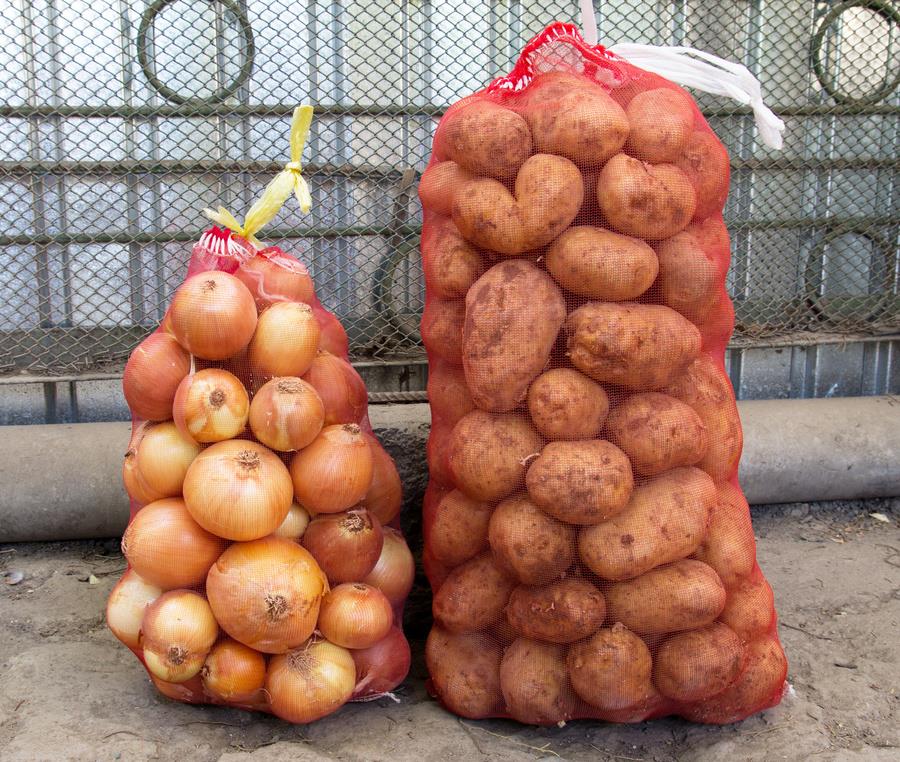Idaho gets additional $2.8 million for specialty crop grant program

By Sean Ellis
Idaho Farm Bureau Federation
POCATELLO – An additional, significant amount of grant money will be available to Idaho’s specialty crop industry this year.
The Idaho State Department of Agriculture in December will begin accepting applications for an additional $2.8 million in grant money available through its annual specialty crop block grant program.
It will be the second time this year the ISDA has accepted applications for the block grant funding, which can be used to promote, market and conduct research for the state’s specialty crop industry.
The ISDA program is designed to solely benefit specialty crops, which include vegetables, fruits, tree nuts, dried nuts, nursery and horticulture crops.
That $2.8 million is in addition to a separate pot of $2 million the ISDA received earlier this year through USDA for the program.
The $2 million was provided through USDA’s normal specialty crop block grant program. The $2.8 million was provided through a COVID-relief bill.
The deadline to submit applications seeking funding for the initial pot of $2 million closed this spring and ISDA expects to announce grant recipients for that funding in September.
The state’s ag department will accept applications for the $2.8 million in funding from Dec. 1 through the end of January. The department expects to announce grant recipients for this additional round of funding next spring.
ISDA Deputy Director Chanel Tewalt said the department will begin conducting outreach to the state’s specialty crop industry in September to give farm groups plenty of time to put together applications for projects.
“It is a significant amount of additional funding,” she said. “Most folks don’t know about this and they don’t necessarily have projects developed, so we want to give a lot of lead time so people can put some good projects together.”
The application guidelines for the additional pot of money available through the COVID-relief bill are basically the same as for the regular specialty crop program funded annually through USDA.
But they do include a somewhat expanded scope, Tewalt said, and that could enable industry groups to put together some unique, innovative projects.
For example, projects available for the $2.8 million in funding could include ones seeking to mitigate impacts related to COVID-19, although they don’t have to.
The extended scope could also include projects designed to help industry deal with FDA’s Food Safety Modernization Act requirements.
“We would love to see this money be able to do a lot of good,” Tewalt said. “It’s going to be exciting to see what industry puts together.”
USDA was authorized through the farm bill to provide $73 million to states this year through its annual specialty crop block grant program.
The national ag department announced April 13 it would provide an additional $97 million for the program in 2021 from money available through a COVID-19 stimulus package.
Since the specialty crop block grant program was created in 2009, ISDA has awarded $17 million to 163 projects designed to benefit specialty crop farmers in Idaho.
Idaho’s potato industry has received a significant amount of funding through the program, as it should since the amount a state receives in specialty crop block grant funding from USDA is based on specialty crop acreage and cash receipts. Idaho, which ranks No. 1 in the U.S. in potato acreage and production, receives a significant amount of total funding compared to other states its size because of its potato industry.
The money has proved especially valuable to many of Idaho’s smaller farm commissions because it has allowed them to fund research, promotion and other projects they otherwise couldn’t afford to.
That’s the case with Idaho’s dry bean industry, which, through the Idaho Bean Commission, has funded a lot of promotion, marketing and research projects over the years it otherwise wouldn’t have been able to, given its $200,000 annual budget.
“This program has been a huge boon to our dry bean industry in Idaho,” said IBC Administrator Andi Woolf-Weibye. “Because we are a small commission with limited funding, we couldn’t do nearly as much research and other projects without that funding.”
Still can't find what you are looking for? Find by topic:
- Achievement Award (YF&R)
- Actions Alerts
- Advocacy
- Ag Ambassadors
- American Farm Bureau
- American Farm Bureau Policy Book
- Archive Photos
- Articles
- Board of Directors
- Calendar - State/District
- Calendar - County
- Capitol Reflections
- Collegiate Chapters
- Committee Application Form
- Commodities
- Convention Annual
- County Presidents & Board Information
- County Resource Page
- Delegate Form
- Discount Programs
- Discussion Meet
- Discussion Meet - High School
- Education Programs
- Events
- Excellence Award (YF&R)
- Expense Voucher
- Flickr
- Gem State Producer
- High School Discussion Meet
- High School Speech Contest
- Hope in Idaho Ag
- House of Delegates Credentials Form
- IFBF Board of Directors
- IFBF Policy Book
- IFBF Staff
- Insurance
- Legislative Action Program
- Legislative Issues
- Library
- MAC Trailer
- Magazines
- Map My Benefits
- Member Benefits
- Member Discount
- Membership Application
- Mission Statement
- Moving Agriculture to the Classroom
- Newsletter Sign up
- News Releases
- News Room
- Open Range Law
